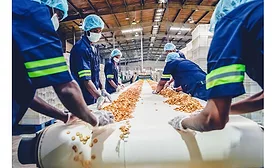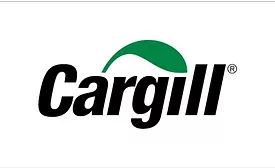Articles by Casey Laughman
Coronavirus
Q&A: How specialty processors are handling the COVID-19 pandemic
Specialty Foods Association president Phil Kafarakis shares insights on how processors are adapting
April 14, 2020
Coronavirus
How processors are adapting training during the coronavirus pandemic
Preparing for sick workers, hiring new employees makes training critical
April 1, 2020
CANNABIS PRODUCTS - MARCH 2019
Finding the right equipment for manufacturing legal cannabis beverages
Challenges like working with cannabis oil have beverage developers looking for equipment solutions.
March 21, 2019
Industry News
FDA Commissioner Scott Gottlieb announces resignation
Gottlieb will leave the agency in April
March 13, 2019
Food Safety
More than 6 million pounds of beef recalled
Meat may be contaminated with Salmonella Newport
October 4, 2018
Food Safety
Whole Foods recalls tortilla chips due to undeclared allergen
White corn tortilla chips have undeclared milk
October 2, 2018
Food Safety
Cargill Meat Solutions recalls ground beef due to possible E. coli
Products were shipped to retail locations nationwide
September 20, 2018
Food Safety
Eggs recalled due to possible Salmonella contamination
Eggs were sold in Alabama, Georgia and Tennessee
September 18, 2018
Regulatory Watch
FSIS proposes amendments to uninspected products rule
Rule would eliminate prescriptive requirements
September 12, 2018
Never miss the latest news and trends driving the food safety industry
Newsletters | Website | eMagazine
JOIN TODAY!Copyright ©2026. All Rights Reserved BNP Media.
Design, CMS, Hosting & Web Development :: ePublishing










